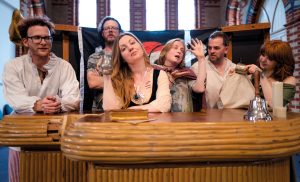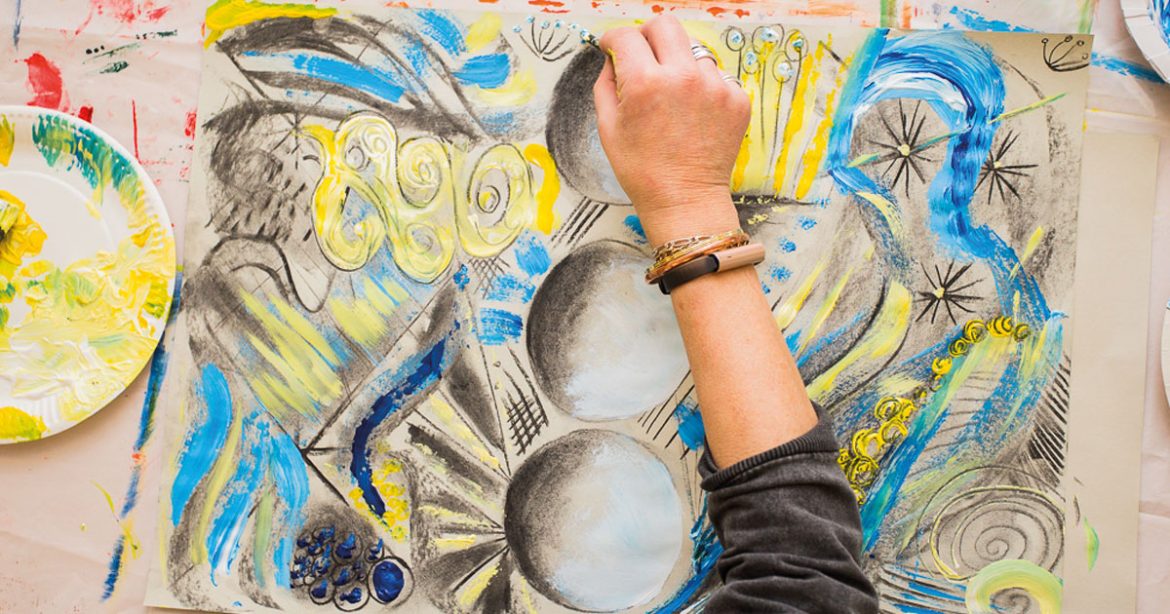Alex Fice meets the local organisation improving wellbeing and changing lives through a range of artistic disciplines
Image: Dan Donovan
Cambridge Community Arts (CCA) takes the belief that creativity helps people feel better, and uses this as the starting point to bring about a positive ripple effect in the local area. Founded in 2014 by Jane Rich, CCA is a charitable organisation that offers short- and long-term courses – online and in-person – in a range of artistic disciplines. These include digital art and design, music for performance, music production, drama, visual arts, photography and creative writing – supporting adults’ creative expression.
“You don’t have to have a mental health problem to find improvements to your wellbeing through taking part in creative activities,” says Beth McCabe, CCA community learning manager. “In fact, if you talk to almost anyone about what they do to de-stress or unwind, chances are you’re going to find something creative. We want to provide opportunities for people to get together and do that. In particular, we want to welcome those who might feel socially excluded, have had difficult experiences with education or find the arts inaccessible in some way.”
Since 2014, CCA has helped over 1,200 people develop a creative skill, most of whom have reported an improvement in contentment by the end of the course. The experience has often proved life-changing, helping them boost their confidence, make new friends and feel integrated within the wider community.
At the end of each course, students are also encouraged to take part in a performance or exhibition that showcases their work. These events are sometimes held in public venues, such as Mill Road’s Edge Cafe, demonstrating just one of the ways in which CCA’s work feeds back into local life.

© Toby Peters
The courses are taught by practitioners who are artists in their own right – from writers and music producers, to digital artists and photographers. All tutors receive ongoing support and training from CCA, reflecting the organisation’s commitment to best practice across the board. CCA also relies on the generosity of volunteers, many of whom have completed CCA courses in the past. They support the non-profit’s mission by helping lead tutors as volunteer teaching assistants, and some even go on to be lead tutors themselves. There are also opportunities to get involved with the strategic and financial direction of the organisation, by joining the Board of Trustees or the Community Advisory Panel.
Another key activity of the charity is its Next Steps project, ensuring that students continue to progress towards their personal goals after the course has ended. “We offer one-to-one support and coaching for any of our learners after they’ve finished a course, helping them pursue further education, employment or training. We work with people to identify what they want to do and where they want to get to, and help them break that down and support them to take those steps.”
We should all find time in our lives to be creative.
For Beth, the number one priority is getting people to understand the importance of arts in our day-to-day lives, as a means of reducing stress and encouraging wellbeing. “Arts activities can be seen as a luxury,” she observes. “We’d say they’re a necessity. We should all find time in our lives to be creative.”
The next programme of short courses begins the week of 31 January – you can apply now.
For more information, please visit Cambridge Community Arts’ website.

